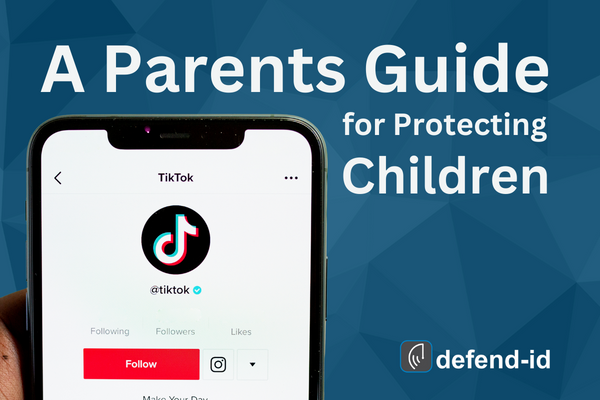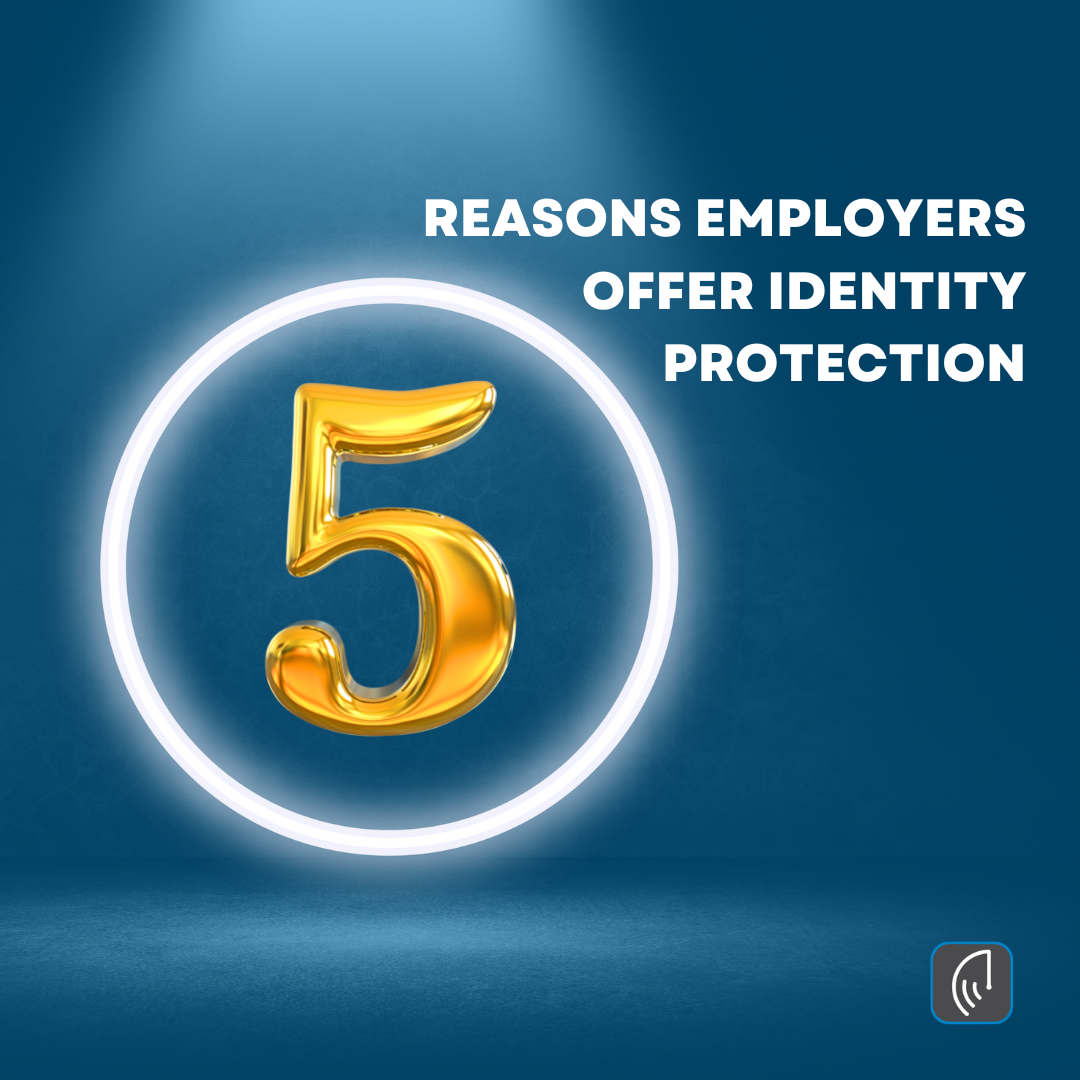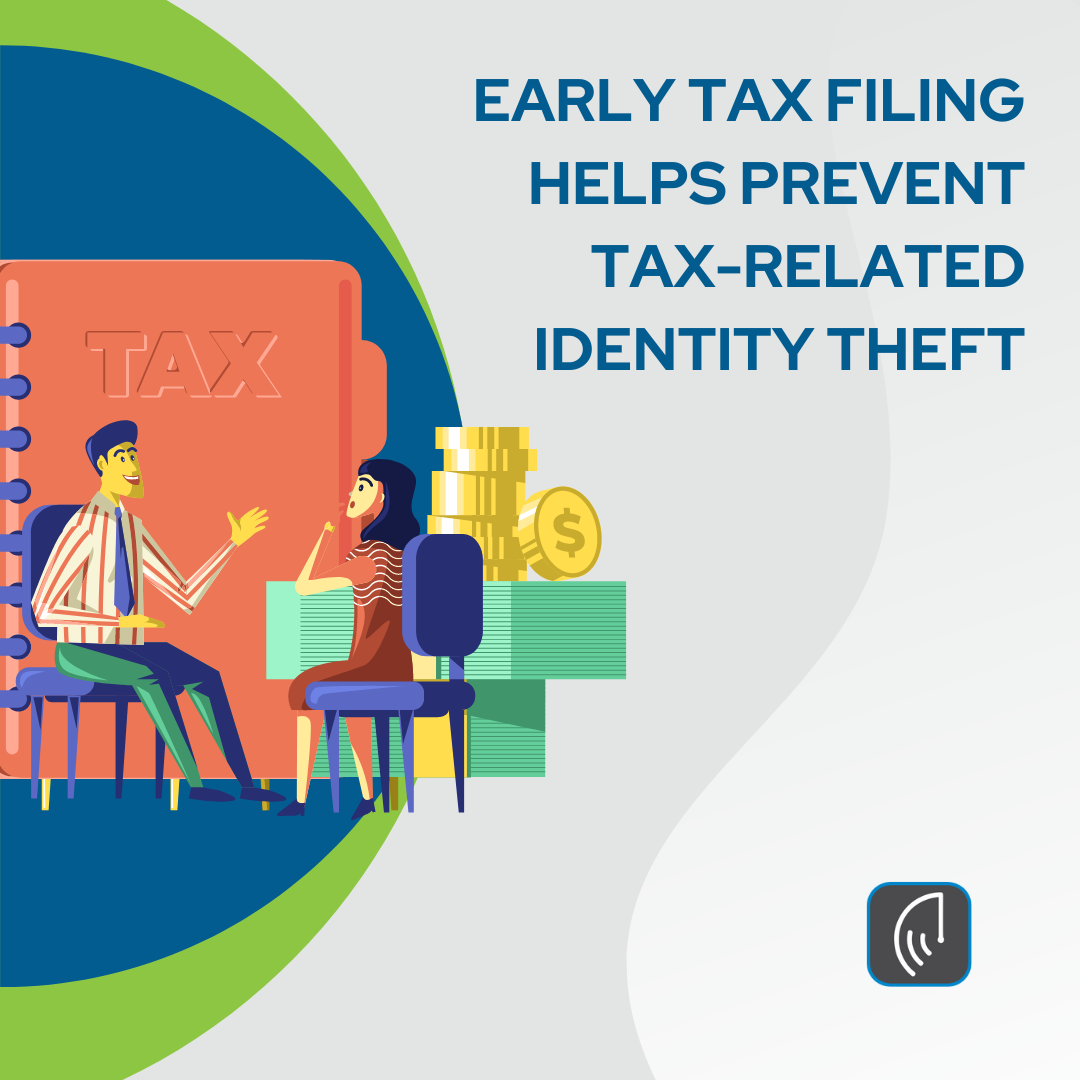
by Brian Thompson | Feb 9, 2023 | General, Identity Theft, Uncategorized
As a parent, it’s important to be aware of the potential dangers and harmful content on TikTok, a popular social media platform among children. This guide provides information on TikTok parental controls and the reasons why it may be best to keep children off the app.
TikTok Parental Controls: A Guide for Protecting Children
Concerned parents and authorities need a comprehensive guide on TikTok parental controls to protect children from harmful and inappropriate content on the popular social media platform. This tutorial outlines step-by-step instructions to implement TikTok controls and discusses privacy policies.
- Create TikTok Account: Get started by creating a TikTok account for your child, giving you access to all platform features and settings.
- Enable Digital Wellbeing: Go to “Settings & Privacy” and select “Digital Wellbeing” to enable features such as “Screen Time Management” and “Restricted Mode.” These tools help monitor children’s activity and protect them from harmful content.
- Adjust Privacy Settings: Protect your child’s privacy by visiting “Settings & Privacy” and selecting “Privacy and Safety.” Change who can send direct messages, view videos, and see their profile to the most secure options.
- Report Inappropriate Content: Encourage your child to report any inappropriate or harmful content by using TikTok’s reporting feature.
- Educate Children: Parental controls are important, but so is educating children on online safety and the potential dangers of social media. Teach them to be cautious with information they share, avoid strangers, and report any inappropriate behavior or content.
Regarding privacy policies, TikTok collects information such as location, device information, and usage data. While this data improves user experience, it may raise privacy concerns for parents. To protect children’s privacy, review TikTok’s privacy policy and adjust app privacy settings to limit data sharing.
In conclusion, TikTok parental controls provide a vital way to protect children from harmful and inappropriate content on the app. By creating a TikTok account, enabling digital wellbeing features, adjusting privacy settings, reporting inappropriate content, and educating children, parents can ensure a safe and enjoyable TikTok experience for their kids.
There are several reasons why it may be best to keep children off TikTok. Some of the main concerns include:
- Inappropriate Content: TikTok is known for hosting a vast amount of content that may not be suitable for children. This includes content that is sexually explicit, violent, or promotes harmful ideologies.
- Online Safety: TikTok is a social media platform that can be used by predators to target and exploit children. Children may be at risk of being exposed to inappropriate content, cyberbullying, or may become victims of online grooming.
- Screen Time: TikTok is a highly engaging platform that can quickly consume a lot of a child’s time. Spending too much time on TikTok can lead to decreased physical activity, disrupted sleep patterns, and decreased academic performance.
- Privacy Concerns: TikTok collects and stores personal data from its users, which can raise privacy concerns. Children may not understand the implications of sharing personal information online, and their data could be used for malicious purposes. See TikTok Terms of Service
- Intrusive Policies: TikTok’s privacy policies may be considered intrusive, as the app collects and stores a large amount of personal data from its users. This can raise privacy concerns, particularly for children who are vulnerable.
Considering the potential dangers and harmful content on TikTok, it may be best to keep children off the app. Instead, parents can encourage children to spend their time on other, safer and more appropriate activities.
Protecting children on TikTok requires a combination of parental controls, education, and awareness of the potential dangers. By understanding TikTok’s privacy policies, implementing parental controls, and limiting children’s time on the app, parents can ensure a safe and enjoyable online experience for their kids.
Related Articles:

by Brian Thompson | Jan 19, 2023 | General, Identity Theft
Identity theft is a growing concern for individuals and businesses alike, and as it pertains to accountants, it is important to consider offering identity theft protection services to clients. Not only can this service provide peace of mind for clients, but it can also help protect the accounting firm’s business from potential liability. Is your Accountant offering identity theft protection?
One of the main reasons why an accountant should consider offering identity theft protection services is the transfer and handling of sensitive documents and information. Accountants have access to a wide range of personal and financial client information. Information including Social Security numbers, bank account information, and tax returns. If this information were to fall into the wrong hands, it could be used for identity theft and other fraudulent activities.
Identity theft protection services can help protect clients from this risk by providing monitoring and alerts for suspicious activity, as well as assistance in the event that their identity is stolen. This can lessen potential damage and give your clients a feeling of security.
Liability
In addition to protecting clients, offering identity theft protection services can also help protect the accounting firm from potential liability. Accountants have a professional responsibility to keep clients’ information secure and protect it from unauthorized access. If a client’s identity is stolen and it is determined that the firm did not take adequate measures to protect their information, it may be held liable for any damages.
Compliance
Another important consideration is compliance. Accountants are subject to a wide range of regulations, including HIPAA, SOC 2, and the GDPR, which all require you to protect personal information. Failure to comply with these regulations could result in fines and legal penalties. By providing identity theft protection services, you can make sure that you are complying with the law and protecting the information of your clients.
As we started with, identity theft is a growing concern for both individuals and businesses, and accountants should consider offering identity theft protection services to their clients. Not only can this service provide peace of mind for clients, but it can also help protect the business from potential liability and compliance concerns.

by Brian Thompson | Jan 11, 2023 | General, Identity Theft
Identity theft is a growing concern for both individuals and businesses. Employers are starting to recognize the importance of offering identity theft protection as a benefit to their employees. As a company, it’s imperative to offer a comprehensive employee benefits package that not only attracts new talent but also helps retain the current workforce. Offering identity theft protection as a benefit is a proactive approach to protecting your employees, their financial well-being, and the company’s reputation, productivity, and compliance. In this article, we will look at the 5 reasons employers offer identity theft protection as a benefit to their employees.
Below you will find 5 reasons employers offer id protection to their employees:
- Employee retention: Offering identity theft protection is a valuable benefit to employees, helping with employee retention and recruitment.
- Productivity: Employees who fall victim to identity theft may have to spend significant amounts of time resolving the issue. The time spent often leads to lost productivity for the employee and the company. Providing identity theft protection can help employees avoid or quickly resolve identity theft issues, which can help improve productivity.
- Employee satisfaction: Providing identity theft protection can help employees feel secure and satisfied with their employer. Both of which can lead to better morale and engagement.
- Reputation: Companies that take steps to protect their employees from identity theft can improve their reputation and public image. Employers that care about the well-being of its employees are always held in higher regard.
- Compliance: In some cases, certain industries may be mandated to provide identity theft protection to their employees. Employers should look into those regulations and make sure they are compliant
By offering identity theft protection as a benefit, employers can help protect their employees from the financial and personal harm caused by identity theft, while also reaping the benefits of increased productivity, employee satisfaction, and reputation.
Please keep in mind that each company will have different needs and resources. Not all identity theft protection options may be suitable for your company, therefore, it is important to evaluate all options and determine the one that best fit your organization.
It’s important to remember that identity theft protection is not just a cost, but an investment in the well-being of your employees and your company’s success.
Related Articles:

by Brian Thompson | Jan 4, 2023 | General, Identity Theft
Did you know that individual tax refunds are a popular target for cybercriminals seeking to profit from stolen identities? And that early tax filing helps prevent tax-related identity theft. According to the IRS, tax returns with confirmed cases of identity theft continue to increase year over year. Taking the necessary precautions to protect yourself from tax-related identity theft is important, and filing your taxes early is one of the best ways to help safeguard your identity Discover why the IRS advises taxpayers to file as soon as possible, as well as the most common warning signs of tax-related identity theft.
Tax-Related Identity Theft: What Is It?
Tax-related identity theft occurs when a criminal claims a tax refund using a stolen Social Security number in the victim’s name. The victim may spend months correcting false deductions, incorrectly reported income, and other issues with their tax return.
According to the IRS, tax-related identity theft is one of the most prevalent tax scams. It is particularly common during tax filing season when taxpayers are preparing their returns either on their own or with the help of a tax professional. The victim is often unaware of the fraud until their tax return is rejected because a criminal has already filed a return using the same Social Security number.
Why the IRS Encourages Early Filing
With good reason, the IRS continues to advise taxpayers to submit their returns as soon as possible.
Because the IRS only accepts one tax return per Social Security number, a taxpayer may be able to beat an identity thief to the punch if they file their legitimate tax return before a potential criminal file their fraudulent one. If, on the other hand, a criminal is successful in filing their fraudulent return first, the victim may have to wait months to resolve issues with the return.
As soon as taxpayers have required paperwork, including W-2s, 1099s, and mortgage interest statements, file as soon as possible. Of course, taxpayers should follow the advice of the financial or tax professional they have retained.
Identify the Red Flags
The IRS advises taxpayers to be on the lookout for the following common warning signs:
- An IRS letter inquiring about a suspicious tax return
- Rejected E-Filing due to a previous filing using the same Social Security number.
- The victim received a tax transcript in the mail without asking for one.
- An IRS notice indicating that an online account in the victim’s name has been created, accessed, or disabled, even though the victim took no action.
- An IRS notice stating that the victim has been subject to collection actions for a year in which they failed to file a tax return, additional taxes are due, or that their refund has been offset
- IRS records indicating earnings from an employer unknown to the victim.
What Should You Do If You Believe You Are a Victim of Tax Identity Theft
If you believe you are the victim of tax-related identity theft, the IRS, and the Federal Trade Commission (FTC) advise you to take the following steps:
- Respond to any IRS notice as soon as possible by calling the phone number provided.
- If your e-filed return is rejected because of an existing filing under your Social Security number, file an identity theft affidavit (IRS Form 14039) electronically at IdentityTheft.gov, or as directed by the IRS. The FTC recommends downloading and saving a copy of the report for your own records.
- Even if you must mail your tax return, keep up with your tax filing and payment obligations. Notifying the IRS or the FTC about suspected tax identity theft DOES NOT relieve you of the obligation to pay taxes.
- Consider requesting a copy of the fraudulent return from the IRS with certain details redacted. The information could help you figure out what the thief knows about you and your family.
- Consider placing a fraud alert, an extended fraud alert, or a credit freeze, as recommended by the FTC.
- Close any financial or credit accounts that were opened or altered by getting in touch with your financial institutions.
Individual tax refunds are a popular target for cybercriminals seeking to profit from stolen identities. Filing your taxes early is one of the best ways to help safeguard your identity. These protective measures can help you prevent further identity theft and provide peace of mind. Early Tax Filing Helps Prevent Tax-Related Identity Theft! Additionally, filing taxes early helps ensure that any refunds are received in a timely manner.
Related Article:
2021’s ‘Dirty Dozen’ Tax Scams

by Brian Thompson | Dec 19, 2022 | General, Identity Theft
A favorite holiday tradition is visiting family while on the road. But we must be careful not to reveal our identities to everyone as we go about spreading holiday cheer. Holiday travel fraud is here and there are some things you should do to prepare.
Because of all the holiday commotion, gift givers, shoppers, and travelers can be a treasure trove for identity thieves who know you might be letting your guard down. If you’re anything like me, you struggle to stay within your budget; however, don’t give the bad guys access to every aspect of your life and finances.
Here are a few things to keep in mind before you crack open the eggnog!
- Put your mail on hold; arrange to have all important documents delivered electronically. Additionally, contact the post office to have your mail held.
- Social media: This one is hard! We all want to share our fun with the world, naturally. You also tell the world when you are not at home and how long you will be gone.
- Check your credit cards and bank accounts. Keep track of the charges and amounts on your accounts and credit cards. You can also set up alerts to let you know when certain spending or account limits are met.
- Clean out our wallet: Remove all but the necessary forms of payment from our wallet. It is simpler to remember which cards you have and quicker to limit your exposure if your purse or wallet is stolen.
- Public WiFi: open access WiFi is never a good idea, period. Open WiFi while on vacation is a bad idea because it is exactly the environment the bad guys are looking to exploit. We strongly suggest using a VPN while on any network that is not yours! Read more here: Public WiFi is Putting You at Risk
- Use hotel safes: Place anything that has personal information on it that you don’t need in the room safe. This way, it isn’t on your person and reduces the risk of it being lost.
- Protect your phone: It seems like we should not have to say this, but if you do not have a password or biometrics on your phone, set them up before you go.
We can’t guarantee that doing this will stop identity theft while traveling or at other times. However, we can affirm that these are always excellent habits to adopt. Do what you can to lessen your chances of experiencing identity theft while traveling for the holidays.
Related Articles:

by Brian Thompson | Nov 29, 2022 | General, Identity Theft
It is such an exciting time of year with holiday parties, buying presents for your favorite people, and enjoying family! But it is also important to keep in mind that online shoppers and the holidays are two things that cybercriminals enjoy during this exciting time. Because Criminals Love the Holidays!
It is wise to keep in mind that websites can be compromised or even spoofed at this time. There are already fake shipping notifications, fake holiday contests, and phishing and vishing scams out there looking for your information.
Threats during the holiday season should serve as a reminder of two crucial life lessons:
- Your private information is not as private as you might believe.
- and cyber thieves do not take the holidays off; in fact, they turn up the volume!
Below are 5 things to consider while you are out spreading holiday cheer!
- Deal with businesses you know and trust.
And use a credit card instead of a debit card or checking account. We are often told to use debit for budgeting purposes, which makes sense, BUT your credit card is safer as it is protected under the Fair Credit Billing Act. It is far easier to recover funds from a stolen credit card than it is from a debit or bank account.
- Watch out for fake website domains; they can easily fool you.
Make sure you are on the correct retailer’s website while shopping. Beware of “domain squatting” sites with an added hyphen or a misspelled or incorrect URL. These tricks can be easily overlooked.
- Scams like phishing and vishing
Pay attention to emails requesting personal information from retailers, the Internal Revenue Service, and financial institutions. No reputable business or government organization will contact you by phone or email and ask for your personal information.
- Fraudulent shipping alerts and notifications
Phishing emails are sent out by scammers and contain links that could allow unauthorized access to your personal data or download malware onto your device.
- Holiday contests
Holiday contests are a great way for retailers to support branding and marketing. Fake contests are a great way for fraudsters to collect your personal information and install malware. Double check URLs to ensure they are truly connected to the company they say they are. When in doubt, don’t fill it out!
In short, think before you click, and if it seems too good to be true, it probably is.
Most importantly, cyber thieves love the holidays, but you can continue to love them too—just be careful!
BONUS:
Top 5 Personal Privacy Tips
- Security software: regularly update the security software (antivirus, firewall, and anti-malware) on your devices.
- Password management: Always create complex passwords using a combination of mixed-case letters, numbers, punctuation, and symbols with a minimum of 20 characters—typically an easy-to-remember sentence.
- Privacy settings: understanding how your information is stored and used Read the privacy settings of the apps and social media sites you frequent.
- Use multi-factor authentication to provide additional information beyond a login or password.
- E-mails and attachments: To reduce your exposure, do not open e-mails and attachments from individuals or organizations that you do not know and trust.
Read more at this FBI Common Holiday Scams link.
Other holiday tips: 4 things to watch out for this holiday season!





